Biochar products that deliver.
MYNO makes the raw materials to grow and build a net-zero world
MYNO converts degradable waste into permanent carbon-based biochar, locking carbon up for good. Our biochars are carbon-negative because the production process removes more carbon from the atmosphere than it adds.
What we make
Carbon-negative biochar materials
Because lower carbon inputs = a lower carbon footprint for businesses.
Biochar has extraordinary porosity and high absorption capacity making it a versatile material for tackling a wide range of water and soil pollutants.
We create high-volume, yield-boosting, biochar-enhanced fertilizers and soil amendment products.
High-performance, biochar-based sustainable materials have the potential to substitute carbon-intensive inputs across multiple industries.
Renewable
energy
Because more carbon-negative energy = less fossil fuel power in the grid.
Certified carbon removal credits
Because businesses must take responsibility for their hard-to-abate emissions today.
Beyond making high-performance carbon-negative biochar, renewable energy and certified carbon removal credits, MYNO creates positive ripple effects.
Making carbon history
We aim to have numerous carbon removal facilities up and running by 2030, all of which would reduce emissions by 5 million metric tonnes of CO₂ annually.
“We are dedicated to the fight against climate change and committed to making carbon history.”
– Thor Kallestad
Founder & CEO of MYNO Carbon Corp.
